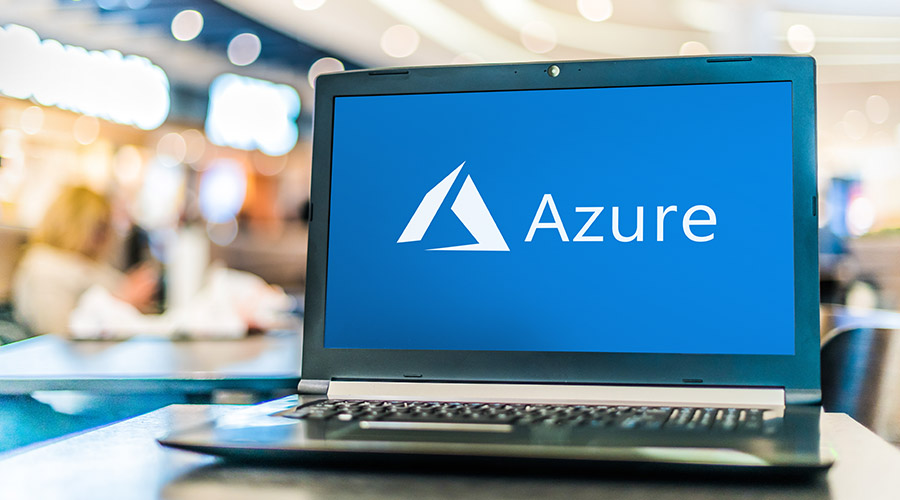The demand for applications is more significant than ever and shows no signs of slowing. That means it’s essential for organizations to deliver quality products and services as quickly as possible, not only to keep up with demand but also to stay ahead of the competition.
That’s why the industry perfected the DevOps methodology; to have a better way to develop and deploy quality applications promptly. But there are many approaches to DevOps, and this article focuses on Azure DevOps. We will discuss the principles behind DevOps, explain what Azure DevOps is, what services it offers and which is best for you, DevOps tools, the benefits of Azure DevOps, pricing, and a way for you to quickly master Azure DevOps.
We begin with the fundamentals, then move on to information regarding Azure DevOps services. So, what’s DevOps?
The Principle of DevOps
Before DevOps came along, traditional software development relied on the waterfall model. Although it was (and still is) an effective model, it works best under relatively strict conditions:
- First, you could only test the software once all development tasks were completed
- If the client gave feedback, it took extra time and money to act on it
- Its effectiveness was conditional upon the client knowing exactly what they wanted and wouldn’t need any changes (and what are the odds of that?)
In response, the Agile method was developed. And although this new methodology brought improvements, it still had limitations:
- Everyone had to be synchronized, from the developers to the clients, before development could even begin
- It was challenging to navigate the right track without a clear vision of the end product
- Cross-checking and tracing back were impossible if the development project lacked sufficient documentation
So, back to the drawing board. DevOps was created to address these weaknesses, bringing development and operations teams together in a way never done before. DevOps is a methodology that combines (Dev) and operations (Ops) teams to deploy efficient, quality applications while reducing the overall development life cycle. DevOps treats all phases, from development to deployment, the same. Additionally, DevOps incorporates automation, which increases efficiency.
Let’s see how Azure DevOps differs from standard DevOps.
Also Read: What is Site Reliability Engineering, and What Is its Role In DevOps?
What is Azure DevOps?
Azure DevOps is Microsoft’s Software as a Service (SaaS) platform that offers teams an end-to-end DevOps toolchain dedicated to developing and deploying quality software. It was launched in 2018 and brings all the benefits of cloud computing into the DevOps methodology. In addition, Azure DevOps is cloud and platform agnostic, so that anyone can benefit from it.
Azure DevOps offers two options. Teams can work in the cloud with Azure DevOps Services or in-house using Azure DevOps Server.
Azure DevOps provides customers with various integrated services that handle the full development lifecycle and can be accessed via an IDE client or a web browser. Those Azure DevOps services are:
- Azure Boards. This service provides a suite of Agile tools that supports planning and tracking work, code defects, reporting, visualization, and issues using Kanban and Scrum methods.
- Azure Pipelines. This service provides teams with build and release services that support continuous integration and delivery of applications. It’s a language, platform, and cloud-agnostic CI/CD platform that supports containers or Kubernetes.
- Azure Repos. This tool offers cloud-hosted private Git repositories or Team Foundation Version Control (TFVC) for your code’s source control.
- Azure Artifacts. Artifacts allows teams to share packages through integrated package management with support for Maven, Python, npm, and NuGet package feeds from private or public sources.
- Azure Test Plans. This tool offers teams an integrated planned and exploratory testing solution, offering several tools to facilitate testing, including manual/exploratory testing and continuous testing.
We should also point out that there’s a difference between Azure DevOps Services and Azure DevOps services. Yes, the language is a bit confusing. Azure DevOps Services is one of the two options customers can choose (Azure DevOps Services or Azure DevOps Servers). Azure DevOps services are the five resources mentioned above that Azure DevOps clients can enjoy.
Now that we’ve outlined the various Azure DevOps services and done some much-needed clarification let’s turn back to Azure DevOps Services versus Azure DevOps Servers.
What’s the Difference Between Azure DevOps Services and Azure DevOps Server?
Besides Azure DevOps Services allowing teams to work in the cloud and Azure DevOps Servers doing the same for in-house teams, what are the differences between the two Azure DevOps types? This chart illustrates the differences.
| Azure DevOps Services | Azure DevOps Servers |
| Based in the cloud | Based on-premises |
| Offers two options to scale and scope data: organizations and projects. | Provides three data scaling and scoping options: deployment, project collections, and projects. |
| You can connect over a public network. | You can connect via an Intranet server. |
| Access levels are assigned to each user. | Access levels are set based on the license. |
So, which of these options should you choose? Let’s find out now.
Also Read: Top 10 DevOps Certifications for Professional Growth
When Should You Choose Azure DevOps Services?
You should sign up for the Azure DevOps Services option when you want these results or features:
- Fast set-up
- Maintenance-free operations
- Easy collaboration across domains
- Elastic scale
- Excellent security
Additionally, Azure DevOps Services supports integration with GitHub Enterprise Server and repositories. Also, Azure DevOps Services provides you with access to cloud build and deployment servers, and application insights.
When Should You Choose Azure DevOps Server?
On the other hand, you can pick Azure DevOps Server. Go with the on-premises Azure DevOps Server when:
- Your data must stay within your network.
- Your work tracking customization requirements are better off with the on-premises XML process model instead of the inheritance process model. Additionally, the on-premises model supports XML definition file modification.
Like Azure DevOps Services, the Azure DevOps Server supports integration with GitHub Enterprise Server repositories. And once you deploy Azure DevOps Server, you can also configure these integration points or servers:
- SQL Analysis Server and SQL Server both support SQL Server Reports and allow you to create Excel pivot charts based on the cube.
- Build server supports on-premises and cloud-hosted builds.
Also Read: What is DevOps Culture and How to Create an Effective One
A Look at Various Azure DevOps Tools
Here’s a selection of the most popular Azure DevOps tools:
- Azure Boards. Use Azure Boards to plan, track, and talk about work across teams using the provided Kanban boards, team dashboards, backlogs, and custom reporting.
- Azure Kubernetes Services. Use this tool to achieve portability across on-prem and public clouds and accelerate containerized application development.
- Azure Monitor. Use Monitor to get full observability into your infrastructure, applications, and network.
- Azure Pipelines. Use this tool to implement continuous integration/continuous deployment (CI/CD) to continuously build, test, and deploy to any cloud or platform.
- Visual Studios. Use Visual Studios’ integrated development environment (IDE) built for creating robust, scalable Azure applications.
What Are the Benefits of Azure DevOps?
Azure DevOps brings a lot to the table, but these are the three prominent advantages:
- You gain quick access to all the latest features. Azure DevOps users gain access to new features every three weeks. Microsoft is transparent, has published the product roadmap, and is committed to rapidly iterating the feature set.
- You can say goodbye to the upgrade cycle. Upgrades are a necessary pain for organizations. However, thanks to the SaaS model, companies no longer need to worry about patching and upgrading their toolchain.
- It’s flexible. Select the services you want; your team doesn’t have to purchase the entire suite of services if they don’t need them.
- It’s reliable. Azure DevOps is reliable, scalable, and available worldwide. In addition, it’s backed by an SLA of 99.9% uptime and 24×7 support.
All that’s left now is figuring out Azure DevOps pricing.
Also Read: What is Chaos Engineering in DevOps?
Azure DevOps Pricing
As of 2023, here is the Azure DevOps price breakdown.
Azure DevOps Services
Individual Services
Azure Pipelines
- One free Microsoft-hosted CI/CD, one free Self-hosted CI/CD.
- One Microsoft-hosted job with 1,800 minutes per month for CI/CD and one self-hosted job with unlimited minutes per month.
- $40 per extra Microsoft-hosted CI/CD parallel job and $15 per extra self-hosted CI/CD parallel job with unlimited minutes.
Azure Artifacts
- 2 GiB free, then starting at $2 per GiB.
- Industry-leading NuGet Server.
- Support for Maven, npm, and Python packages.
- Upstream sources to help protect open-source dependencies.
- Integrated with Azure Pipelines.
- Sophisticated access controls.
User Licenses
Basic Plan
- First five users free, then $6 per user per month.
- Azure Pipelines: Includes the free offer from INDIVIDUAL SERVICES
- Azure Boards: Work item tracking and Kanban boards.
- Azure Repos: Unlimited private Git repos.
- Azure Artifacts: 2 GiB free per organization.
Basic and Test Plans
- $52 per user per month.
- Includes all Basic plan features.
- Test planning, tracking, and execution.
- Browser-based tests with annotation.
- Rich-client test execution.
- User acceptance testing.
- Centralized reporting.
Azure DevOps Server
If you choose Azure DevOps Server 2022, you can either pay monthly through Azure or buy classic software licenses, which require a three-year commitment. However, if you purchase through Azure, you get the bonus of using the cloud service, letting you migrate to the cloud at your own pace. In either case, you will also need Windows or Windows Server licenses for servers running Azure DevOps Server 2022.
How About a Career in DevOps?
If all this information has you fired up for a DevOps career, consider getting your start by signing up for this highly instructive DevOps bootcamp online.
Learn how to bridge the gap between development and operations in nine months through applied learning and hands-on industry projects, acquiring hands-on skills in continuous deployment and configuration tools such as, Chef, Puppet, Ansible, and SaltStack. This program also covers cloud platforms, containerization, deployment automation, source control, and much more.
You might also like to read:
What is Continuous Deployment? Exploring a Critical Component of DevOps
What is DevSecOps? Definition, Benefits, Best Practices
What is DevOps Automation? A Beginner’s Guide
Embracing Efficiency and Automation with GitOps: A Comprehensive Guide






